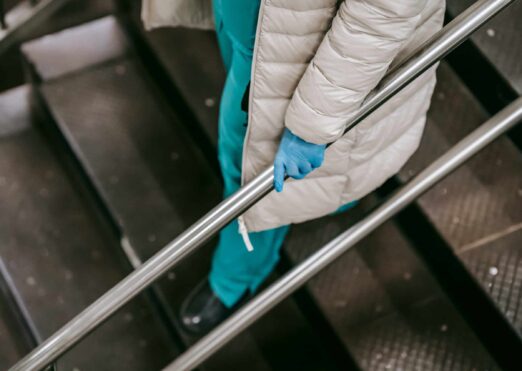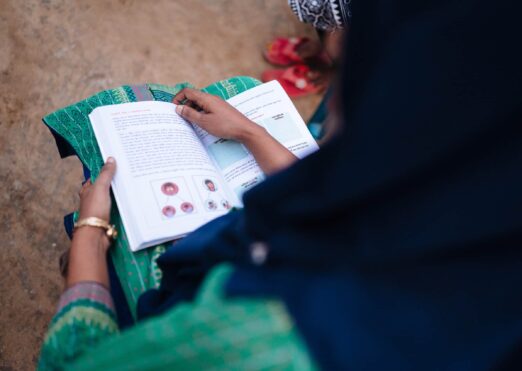‘Romanians to the Rescue’
April 17, 2020
You could probably have chosen your own betting odds on a Daily Mail ‘Romanians to the Rescue’ Easter splash a few months ago. But that is exactly what we read this week, as news broke that another plane carrying 150 masked fruit and veg pickers was on its way from Bucharest to Britain.
Understandably fears are growing for tonnes of unharvested produce here – crops in danger of rotting in fields across the country at a point of peak demand. As our national lockdown continues, efforts to raise this temporary ‘land army’ to bring it in have again taken us to the well-trodden recruitment grounds of Eastern Europe. Planes full of pickers have been arriving here for weeks now. But lockdown or not, it is reported that 98% of the 90,000 pickers needed here each year come from outside the UK – with Romania and Bulgaria supplying the majority.
As both the plane and the story landed this week, the ‘hot takes’ from pundits and politicians focused on Brexit and immigration. Residual Remainers seized on this rescue operation with glee, wasting no time to point out the irony. As a Government elected to ‘Get Brexit Done’ seeks to steer our nation through this global health disaster and away from the biggest economic crash for possibly 300 years, we are calling for so-called ‘low-skilled’ Europeans. Aside from the fact this is nothing new and not necessarily going to change post-Brexit, to focus solely on that is to miss another crucial angle: human trafficking.
There is absolutely no suggestion of trafficking in this particular case. No doubt in this instance and others, plenty of legitimate agencies supply willing workers into the UK, treat them fairly and pay them properly. But through our European work at Justice and Care, we also know that every week – from poorer countries like Romania – planes, boats, lorries and buses transport many unwilling people for ‘jobs’ that don’t pay a penny, are abusive, violent and that they are not free to leave. They are Europe’s slaves and there are thousands and thousands of them.
I recently wrote a piece suggesting that this COVID-19 pandemic might force slavery out into the open and reveal more about how it works. Sadly it didn’t take long. For although this case looks clean, through this latest planeload of Romanians we caught a glimpse of the ways in which organised crime groups, often fronted by legitimate businesses, can flourish.
This, along with the movement of people being in focus more clearly than ever, should cause us to ask deeper questions. Like the UK, Romania is in lockdown. People are fearful and dying there, just as we are here. So, for example, it tells us something about people’s vulnerability that – at such short notice – they would wave goodbye to families in the midst of a deadly pandemic, fly to its European hotspot and work outdoors so others can eat food they often can’t afford. Like people who end up trafficked illegally, this often comes down to desperation, poverty and a severe lack of local work.
Another question relates to the speed of supply for these types of workers. We need to know more about how large groups of people end up delivered like parcels to UK workplaces so rapidly. It happens regularly. We also need to know more about recruitment methods and sources – for example, plenty of trafficking cases in the UK begin in the same kinds of rural villages, where people are sold a dream that quickly shatters en route to their destination, or they are simply taken. We also know too little about employment conditions when people arrive. Much of this seasonal or temporary work is hidden out of sight – this makes exploitation easy for those so inclined.
UK farms and factories are not alone in this rush for new workers. At the opposite end of the business scale, we read that in just four weeks Amazon recruited 100,000 additional workers to meet demand, and is now on the hunt for 75,000 more. Other high-demand industries will face the same global rush for labour. Again there is no suggestion Amazon recruited unethically, but with high demand and haste, in the context of rising unemployment, people could easily end up exploited by other firms or recruitment middle-men. When times get tough, the bottom line becomes the bottom line. This increases the risk for those desperate for work.
COVID-19 has changed the world dramatically. There is no clear way ‘back to normal’ at the moment. But it is vital, in this crisis, that we don’t cut ethical corners or make life easier for human traffickers. With global and national progress made in the anti-slavery fight these last few years – across business, policing, Government and consumer awareness – we mustn’t turn a blind eye to these deeper and more complex questions in the quest for resilience and then recovery.
Christian Guy is the Chief Executive of Justice and Care


